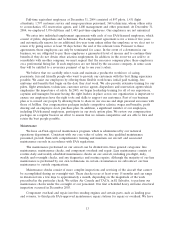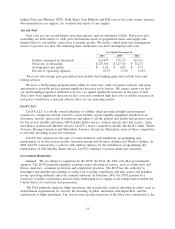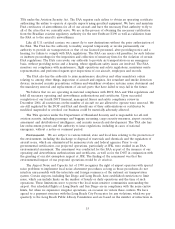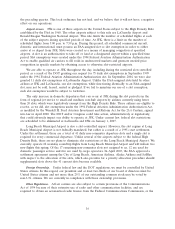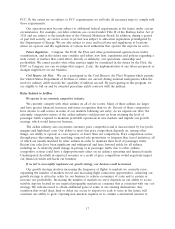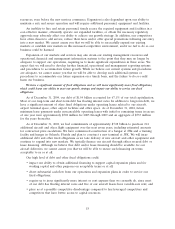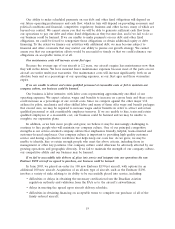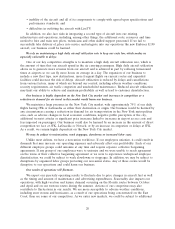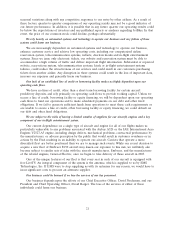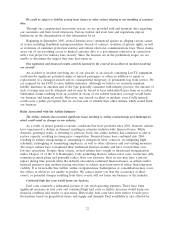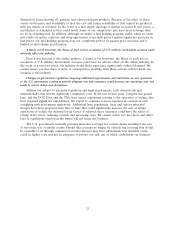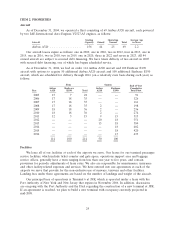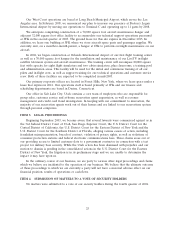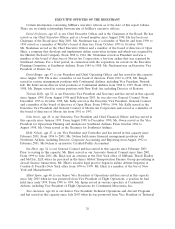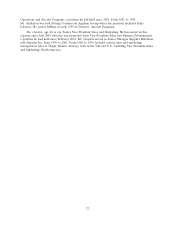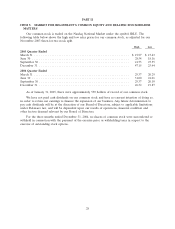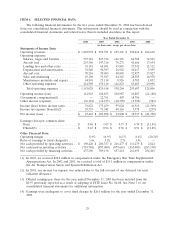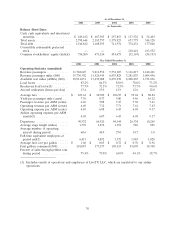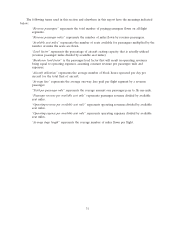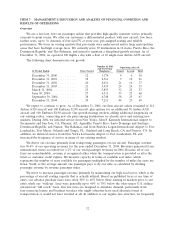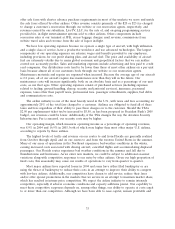JetBlue Airlines 2004 Annual Report Download - page 31
Download and view the complete annual report
Please find page 31 of the 2004 JetBlue Airlines annual report below. You can navigate through the pages in the report by either clicking on the pages listed below, or by using the keyword search tool below to find specific information within the annual report.demand for home heating oil, gasoline and other petroleum products. Because of the effect of these
events on the price and availability of fuel, the cost and future availability of fuel cannot be predicted
with any degree of certainty. In the event of a fuel supply shortage or further increases in fuel prices, a
curtailment of scheduled service could result. Some of our competitors may have more leverage than
we do in obtaining fuel. In addition, although we utilize a fuel hedging program, under which we enter
into crude oil option contracts and swap agreements to partially protect against significant increases in
fuel prices, our fuel hedging program does not completely protect us against price increases and is
limited in fuel volume and duration.
A future act of terrorism, the threat of such acts or escalation of U.S. military involvement overseas could
adversely affect our industry.
Even if not directed at the airline industry, a future act of terrorism, the threat of such acts or
escalation of U.S. military involvement overseas could have an adverse effect on the airline industry. In
the event of a terrorist attack, the industry would likely experience significantly reduced demand. We
cannot assure you that these actions, or consequences resulting from these actions, will not harm our
business or the industry.
Changes in government regulations imposing additional requirements and restrictions on our operations
or the U.S. government ceasing to provide adequate war risk insurance could increase our operating costs and
result in service delays and disruptions.
Airlines are subject to extensive regulatory and legal requirements, both domestically and
internationally, that involve significant compliance costs. In the last several years, Congress has passed
laws, and the DOT, FAA and the TSA, have issued regulations relating to the operation of airlines that
have required significant expenditures. We expect to continue to incur expenses in connection with
complying with government regulations. Additional laws, regulations, taxes and airport rates and
charges have been proposed from time to time that could significantly increase the cost of airline
operations or reduce the demand for air travel. If adopted, these measures could have the effect of
raising ticket prices, reducing revenue and increasing costs. We cannot assure you that these and other
laws or regulations enacted in the future will not harm our business.
The U.S. government currently provides insurance coverage for certain claims resulting from acts
of terrorism, war or similar events. Should this coverage no longer be offered, the coverage that would
be available to us through commercial aviation insurers may have substantially less desirable terms,
result in higher costs and not be adequate to protect our risk, any of which could harm our business.
23


